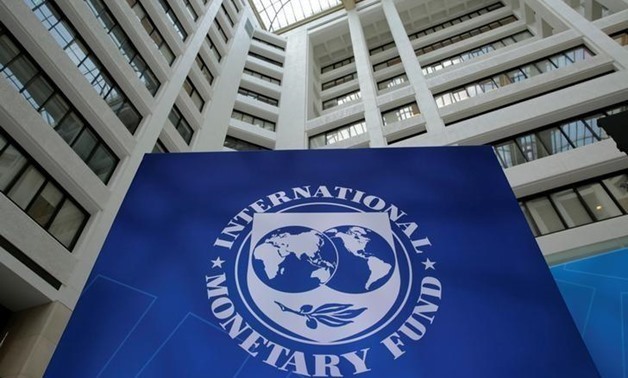
The International Monetary Fund logo is seen during the IMF-World Bank spring meetings in 2017- Reuters
CAIRO – 8 October 2017: Though many might not feel the economic improvement on the ground, the latest International Monetary Fund (IMF) review on Egypt showed positive predications for Egypt’s economy.
Egypt is expected to receive the third installment of the loan of around $2 billion after a second review at the end of this year. So far, it has been granted $4 billion of the overall three-year $12 billion facility.
The predictions include:
• GDP growth of 4.5 percent during the current fiscal year (FY) 2017/2018, compared with 3.5 percent last fiscal year.
• Inflation rate to dwindle to 22.1 percent by the end of the current fiscal year, compared to an average of 23.9 percent last fiscal year.
• Foreign debt to register 19.1 percent of GDP by the end of FY 2017/2018, compared to 20.8 percent in FY 2016/2017.
• Domestic debt to stand at 68.6 percent this financial year, down from previous estimates of 80.2 percent.
• Tax revenues increase to LE 607 billion during this fiscal year, compared to LE 450 billion the previous year
• Property and income taxes’ revenues increased to LE 262.8 billion, up from a previous estimate of LE 257.1 billion.
• Suez Canal revenues recorded $5.5 billion in FY 2017/2018, opposite to $5 billion in 2016/2017.
• Egypt attracted foreign direct investments worth $9.4 billion during the current year, compared to $8.8 billion last year.
• The deficit in the trade balance decreases to 4.6 percent of GDP this financial year, and to 3.8 percent in the upcoming fiscal year.
Meanwhile, the report said that two performance criteria have been missed. The target on tax revenues was missed because of delays in issuing the executive regulations for the introduction of the new value-added tax (VAT).
Performance criteria for primary balances and fuel subsidies were also missed by about one per cent of GDP on the back of the depreciation of the pound and inflating the imports bill.
In general, the report said that the government has made a strong start to the reform program.
“This was accomplished by the Central Bank of Egypt’s (CBE) decision to refrain from intervention and allow a foreign exchange market to develop, as well as the Ministry of Finance being steadfast in containing discretionary expenditure and exercising restraint in wage policies, which are crucial for the adjustment process,” the report said.

Comments
Leave a Comment